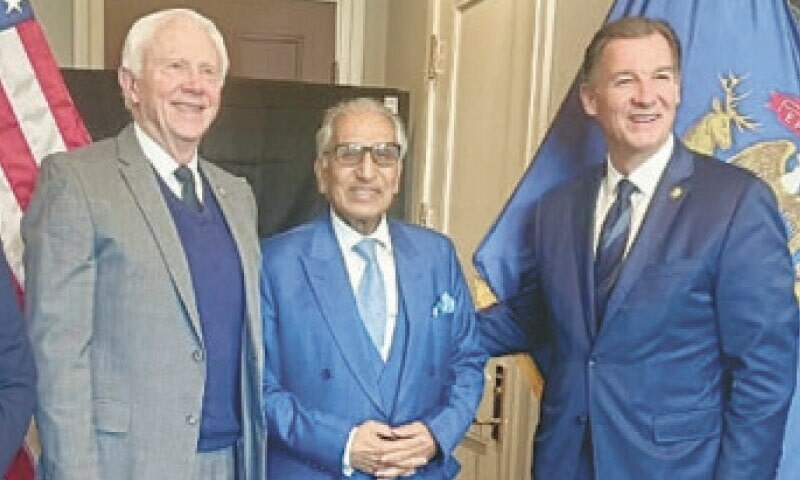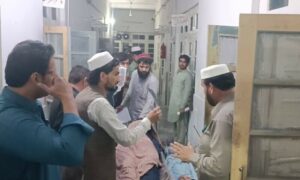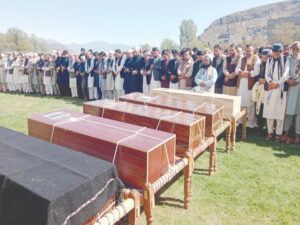• PM’s aide meets ranking members of Pakistan Caucus, head of Foreign Affairs committee
• Positive overtures from US officials, especially on economic cooperation, buoy Islamabad’s hopes
Tariq Fatemi, a key aide to Prime Minister Shehbaz Sharif, has embarked on a series of high-level meetings in Washington, as Pakistan pushes for more positive engagement with the Trump administration.
The push comes while the US is at a crossroads, with the new administration determined to forge its own path, both on the domestic and foreign policy front.
In addition, the US Congress has intensified its focus on Pakistan’s human rights record, and this week also saw the introduction of a bipartisan bill in the House of Representatives, seeking sanctions on senior Pakistani state officials.
This was followed by further commercial curbs on China-linked entities, including a number of Pakistan-based units.
At the same time, signs of a thaw in the otherwise frosty ties between the two capitals were evident at a Pakistan Day reception, held earlier this week at the Pakistan embassy in Washington, where senior US officials acknowledged Islamabad’s vital contributions to global security and counterterrorism efforts.
According to the embassy, Mr Fatemi has already briefed Brian Mast, chairman of the House Foreign Affairs Committee, on Pakistan’s political and security situation.
In their meeting, he outlined the government’s efforts to promote democracy while tackling a surge in terrorist attacks across the country.
In the same week, Mr Fatemi also met Congresswoman Sydney Kamlager-Dove, a ranking member of the Subcommittee on South and Central Asia, as well as the co-chairs of the Congressional Pakistan Caucus — Jack Bergman and Tom Suozzi. Pakistan’s Ambassador to the US Rizwan Saeed Khan and other senior diplomats also accompanied him during these discussions.
Both the House Committee on Foreign Affairs and its Subcommittee on South Asia will play a key role in determining the fate of the sanctions bill, proposed by Congressmen Joe Wilson and Jimmy Panetta.
Pakistan Day reception
The issue was also discussed at a recent diplomatic reception, held at the Pakistan Embassy, where officials expressed concern, but remained hopeful that the bill would not gain enough traction to pass.
Unlike previous years, the reception saw an unusually large turnout, with many senior officials from the State Department and Pentagon in attendance. The embassy’s main reception hall was unable to accommodate all guests, prompting organisers to set up an overflow area in an adjoining room.
The strong presence of US officials reflected a visible shift in Washington’s approach to Islamabad, moving beyond the largely cordial but restrained ties seen under the Biden administration. However, the Trump administration has yet to appoint an assistant secretary of state for the Bureau of South and Central Asian Affairs.
Some pointed to Pakistan’s ongoing security cooperation with the US, citing Islamabad’s recent role in arresting and deporting an IS-K terrorist as evidence of its strategic importance to Washington.
Surprisingly, Mr Fatemi’s meetings on the Hill remained largely undisclosed until quite recently — to the extent that he skipped the Pakistan Day reception at the embassy on Monday night.
The following morning, he engaged in closed-door discussions with US lawmakers “underscoring Islamabad’s economic priorities and its desire to expand bilateral cooperation,” the embassy later said.
It reported that the discussions primarily focused on Pakistan-US relations, economic cooperation, and regional affairs. Mr Fatemi briefed lawmakers on Islamabad’s economic policies, stressing that boosting trade, investment, and commercial ties remains a top priority.
“We seek to further expand Pak-US relations, especially in economic cooperation,” the embassy quoted him as saying, reiterating the government’s commitment to attracting foreign investment.
This echoed something Eric Meyer, the senior official overseeing the Bureau of South and Central Asian Affairs at the State Department, said during the Pakistan Day reception.
“I’m personally very much looking forward to visiting Islamabad soon to attend a major minerals investment forum,” he had said, speaking about the growing economic ties between the two countries.
“Together, we will further strengthen our economic ties and explore new opportunities for collaboration,” he said.
Mr Meyer also referred to Pakistan’s efforts in capturing an IS-K terrorist wanted by the US. “The United States and Pakistan share a mutual commitment to ensuring global security and countering threats to peace, both in the region and beyond,” he stated.
Speaking at the reception, Democratic Senator Chris Van Hollen focused on the need to “strengthen the bonds of friendship between the peoples of our two great countries.” He also spoke of the “enormous contributions” the Pakistani American community has made “to our country in every field of endeavour.”
Greater scrutiny
While the official statement emphasised economic engagement, diplomatic sources suggest that behind closed doors, Mr Fatemi and his team sought to address mounting US concerns over Pakistan’s political climate and human rights record.
His visit is seen as part of Islamabad’s broader efforts to counter the growing influence of Imran Khan’s PTI in Congress, thanks in no large part to an aggressive campaign, launched by US-based members of the former PM’s inner circle.
For his part, Mr Fatemi is no diplomatic slouch either; having served the incumbent PM’s elder brother — three-time PM Nawaz Sharif — in a similar capacity.
With momentum building in Congress, Pakistan faces an uphill battle in preventing further legislative action against its officials. While Mr Fatemi’s visit may help project the government’s narrative in Washington, but US scrutiny of Pakistan’s internal affairs is unlikely to subside anytime soon.
Published in Dawn, March 27th, 2025








